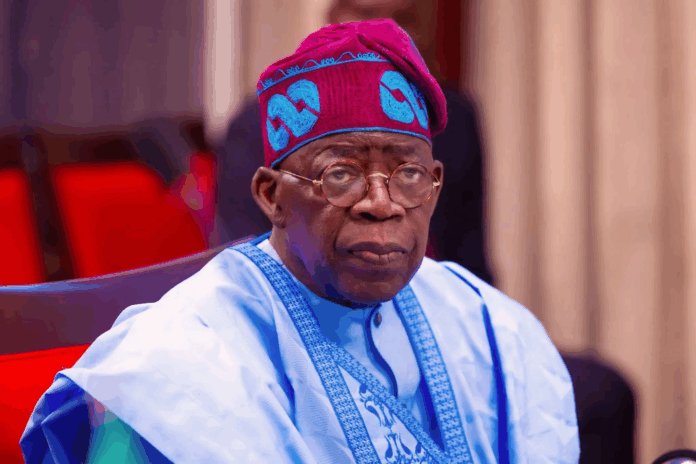By Haruna Yahaya Poloma
Two years ago, Bola Tinubu swept into power on the wings of his “Renewed Hope” mantra, promising prosperity, stability, and a break from Nigeria’s cycle of dysfunction. Today, as his administration marks its midterm, that hope has curdled into despair. Tinubu’s tenure has been a masterclass in economic mismanagement, policy incoherence, and a staggering indifference to the suffering of ordinary Nigerians. From skyrocketing inflation to a collapsing power sector, from mass unemployment to a security crisis spiraling out of control, his government has presided over a midterm of unrelenting misery.
The Fuel Subsidy Fiasco: A Self-Inflicted Economic Catastrophe
Tinubu’s defining act—the abrupt removal of petrol subsidies on his inauguration day—was less a bold reform than an act of economic arson. Overnight, petrol prices surged from ₦185 to over ₦1,000 per litre, triggering a chain reaction of hyperinflation in transportation, food, and basic goods. The government’s justification—that subsidy removal would free funds for development—rings hollow when Nigerians see no tangible improvements in infrastructure or social services. Instead, they face a brutal cost-of-living crisis, with inflation peaking at 34.8% in late 2024.
Worse still, the promised benefits of subsidy removal—like domestic refining capacity—remain a mirage. Despite Tinubu retaining the petroleum portfolio (a dubious tradition of Nigerian leaders), fuel imports continue as local refineries struggle. The much-hyped Dangote Refinery, while a rare bright spot, has yet to offset the crisis, leaving Nigeria’s energy sector in shambles.
The Power Sector: Darkness and Dysfunction
If Tinubu’s handling of fuel was disastrous, his administration’s approach to electricity is outright negligent. Under Minister Adebayo Adelabu, Nigeria’s power grid collapsed 12 times in 2024 alone, plunging homes, businesses, and even hospitals into darkness. Universities and medical facilities, including the prestigious University College Hospital, were disconnected for months over unpaid bills—forcing the government to scramble for a ₦10 billion solar bailout for Aso Rock itself.
With only 5,000 megawatts for a population of over 200 million—compared to South Africa’s 58,000 MW—Nigeria’s power sector is a lamentable laughingstock. The introduction of punitive “consumption bands” has only raised costs without improving supply, perversely squeezing households and businesses.
Economic Freefall: The Naira’s Nosedive and the Exodus of Jobs
Finance Minister Wale Edun presides over an economy in freefall. The naira, once trading at ₦740 to the dollar, now wobbles between ₦1,500 and ₦1,600, eroding savings and purchasing power. The new minimum wage of ₦70,000 is a cruel joke when compared to South Africa’s ₦393,000 or Egypt’s ₦209,000—yet even this paltry sum remains unimplemented in many states of Nigeria.
Multinationals, from Diageo to Kimberly-Clark, have fled Nigeria, taking 20,000 jobs along with them. The reason? An unfriendly business environment, erratic power, and suffocating bureaucracy. Meanwhile, the “japa” syndrome drains the country of doctors, engineers, and skilled professionals, leaving critical sectors in manpower ruination.
Security: A Government in Denial
Despite allocating ₦6.11 trillion to defense in 2025, Tinubu’s security chiefs have failed spectacularly. Boko Haram, ISWAP, bandits, and newly emerging terror groups in Sokoto and Kwara continue their reign of unchecked violence and impunity. Plateau and Benue states remain blood-soaked battlegrounds, while the military struggles to protect even its own bases from attacks. The government’s hollow assurances—”terrorists are no match for our troops”—are an insult to grieving communities and their hapless victims.
Ethnic Favouritism and a Divided Nation
Beyond policy failures, Tinubu has exacerbated Nigeria’s fragile unity by stacking key institutions with his ethnic Yoruba appointees. All eight of Nigeria’s most powerful positions—Central Bank, NNPC, Police, Army, Customs, EFCC, and others—are now held by Yorubas, a historic imbalance that fuels ethnic tensions and magnifies the fault lines of a deeply divided nation. Critics, including voices from his own party, warn that this lopsidedness undermines national cohesion and sets a dangerous precedent.
Conclusion: A Government Adrift
Tinubu’s midterm report card is one of broken promises and worsening suffering. His reforms, praised by vampire and blood sucking international bodies like the IMF, have yet to translate into tangible relief for Nigerians. Instead, his administration oscillates between denial and deflection—APC governors may trumpet “vindication,” but the streets tell a continuously different story.
With two years left in an era of unprecedented bungling blunders, Tinubu has a choice: course-correct with genuine reforms, fiscal discipline, and inclusive governance—or double down on the same blunders while eyeing re-election in 2027. For now, Nigerians endure a midterm of misery, led by a government that governs for itself and its cronies, not the Nigerian people it swore to serve.
Haruna Yahaya Poloma.
[email protected]
The views expressed by contributors are strictly personal and not of Law & Society Magazine.





